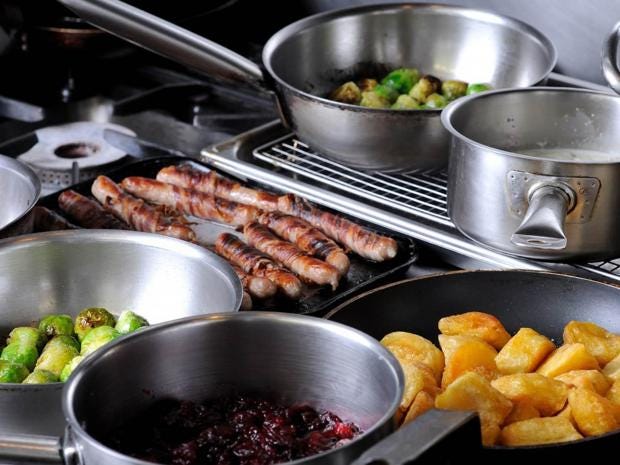Forgetting to turn the oven on for the turkey, or struggling with names at a family get-together, are early warning signs of dementia which the NHS has advised everyone to watch out for this Christmas.
Older relatives might have begun to deteriorate slowly over the year, and family and friends visiting and Christmas might be better placed to spot this than more regular visitors.
This comes as charity the Alzheimer’s Society warns that their helplines see a spike in calls from concerned relatives in January.
NHS England’s national clinical director for dementia and older people’s mental health, Professor Alistair Burns, said the key sign is when tasks that should come easily become a struggle.
“I’m not a great cook so me not being able to whizz up a Christmas dinner would be no surprise, but when someone who usually shines in the kitchen is forgetting to do the basics, that can be a vital clue,” he said.
Often this is chalked up to one too many sherries, but Professor Burns says taking the time to evaluate these changes could help get support in early.
Other tell-tale signs could include:
- Mixing up the cooking order for dinner
- Struggling to get orientated in a house with an unfamiliar layout
- Drawing a blank on a family member’s name, to the point that it becomes embarrassing
- Forgetting to get a relative a present
Dementia costs the health service an estimated £23bn annually, with around 676,000 people suffering from the condition.
One in three of us will care for someone with dementia during our lifetime, so Professor Burns is also encouraging people to sign up to the Alzheimer’s “dementia friends” programme
Professor Burns said: “Dementia is something that happens slowly so it may slip by unnoticed in people we see regularly. That’s why the Christmas visit to wider family and friends is an opportunity to spot the early warning signs.
“The NHS is here to help, but diagnosis is the first big step and this is where people who know someone best can really make a difference in spotting the signs of dementia.
Erika Aldridge, head of advice at Alzheimer’s Society, said: “It can be difficult to know how to discuss concerns with a loved one, and there is no right or wrong way to approach this.
“If you do notice any changes in someone close to you that gives you cause for concern, such as repeated forgetfulness, confusion or behaviour that is out of character, our Helpline is here to offer you expert advice.”
More than 1,400 people will be stuck in hospital with dementia this Christmas, often waiting ten times longer to be discharged than patients without the condition.
- More about:
- Dementia
- Alzheimer's disease
- Christmas
